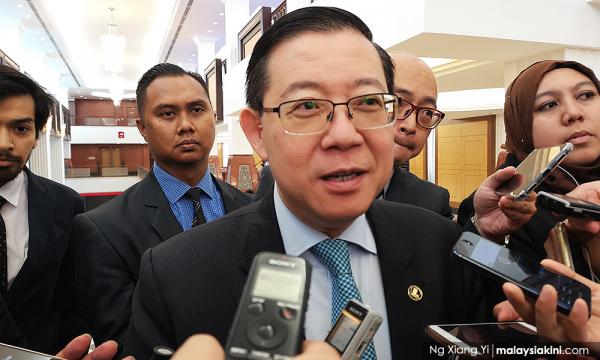Finance Minister Lim Guan Eng has denied allegations that the 2019 Budget proposal neglects rural development.
Instead, he said the apparent decrease in allocations is due to some expenditures being reclassified or functions being moved to other ministries, with some agencies even expected to see an increase in funding next year.
“The malicious allegation is that allocations for rural development had been neglected, such as (the allegation that) Mara’s (Majlis Amanah Rakyat) allocation being cut in half,” he said in a statement today.
He explained that although certain quarters had highlighted that Mara’s operating expenditure would be slashed by RM2 billion to RM1.3 billion next year, Mara’s total operating and development expenditure would remain the same as this year, which is RM3.7 billion.
He said the apparent decrease is due to Mara scholarships totalling RM2 billion being reclassified as a development expenditure, in view of the fact that it is a long-term investment for the country to develop human capital amongst bumiputeras.
The scholarships were previously classified as an operating expenditure.
Lim also turned to allegations that the Rural and Regional Development Ministry’s (KKLW) budget would be reduced from RM9.5 billion this year to RM8.4 billion next year.
He said this is because the ministry has been rebranded as the Rural Development Ministry (KPLB), but some agencies previously under KKLW had been moved to other ministries.
These include the Rubber Industry Smallholders Development Authority (Risda), Federal Land Consolidation and Rehabilitation Authority, and the Department of Orang Asli Development.
Meanwhile, Lim said agencies such as Yayasan Peneraju Pendidikan Bumiputera (Peneraju) and the Federal Land Development Authority (Felda) would see an increase in funding.
He said Peneraju’s funding would be increased from RM90 million this year to RM210 million next year to fund training programmes for bumiputera youths, especially amongst low-income earners.
As for Felda, its funding would be increased from RM160 million this year to RM260 million next year to fund road upgrades and water supplies for Felda settlements.
Open tenders
Lim also said the government would continue to use open tenders as a cost-saving measure, rather than to use the previous administration’s approach of using limited tenders and direct negotiations to award megaprojects that involved high costs.
However, he added, this would not mean that the government is sidelining the development of bumiputera entrepreneurs.
“What has been earmarked for bumiputera entrepreneurs such as in rural development agencies will be maintained, and the difference is that open tenders must be conducted amongst qualified bumiputera contractors. There will no longer be a need to get approval from division heads, or only certain bumiputera cronies getting projects.
“The Finance Ministry’s guidelines are that ministries and government agencies are to ensure that at least 30 percent of contract value tendered each year is tendered only amongst bumiputera contractors,” he said.
In addition, contracts worth RM200,000 and below would remain reserved for Class G1 (previously known as Class F) bumiputera contractors, he said, and procurement would be done through quotations.


